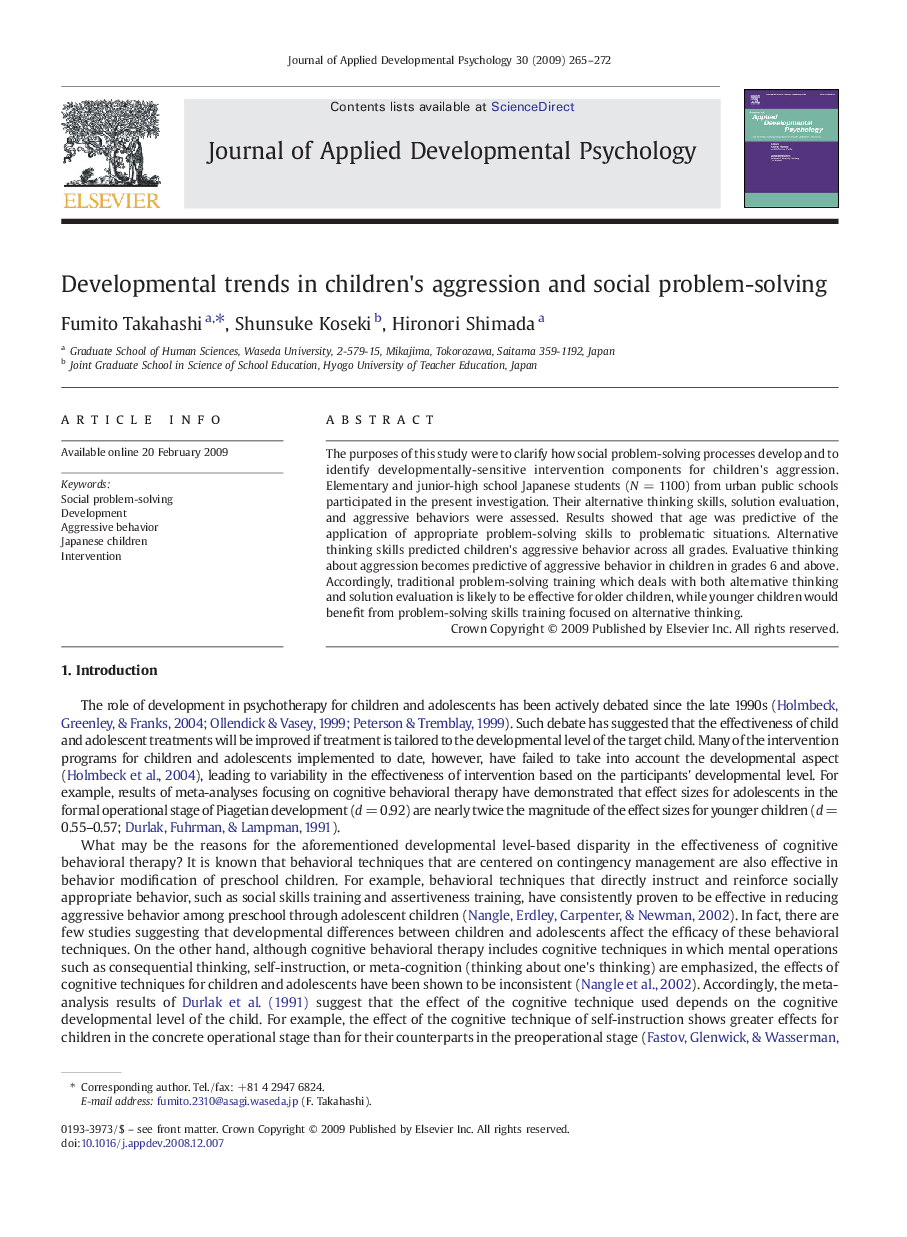| Article ID | Journal | Published Year | Pages | File Type |
|---|---|---|---|---|
| 360054 | Journal of Applied Developmental Psychology | 2009 | 8 Pages |
The purposes of this study were to clarify how social problem-solving processes develop and to identify developmentally-sensitive intervention components for children's aggression. Elementary and junior-high school Japanese students (N = 1100) from urban public schools participated in the present investigation. Their alternative thinking skills, solution evaluation, and aggressive behaviors were assessed. Results showed that age was predictive of the application of appropriate problem-solving skills to problematic situations. Alternative thinking skills predicted children's aggressive behavior across all grades. Evaluative thinking about aggression becomes predictive of aggressive behavior in children in grades 6 and above. Accordingly, traditional problem-solving training which deals with both alternative thinking and solution evaluation is likely to be effective for older children, while younger children would benefit from problem-solving skills training focused on alternative thinking.
